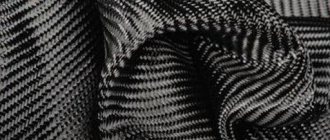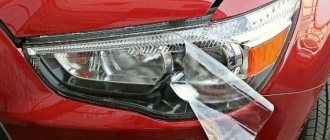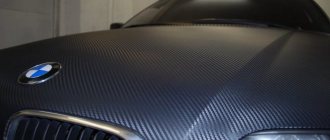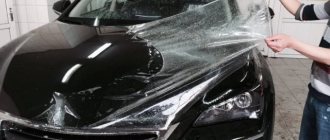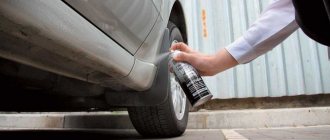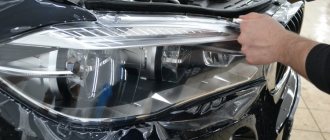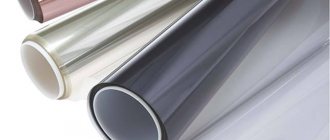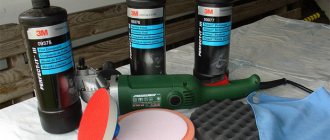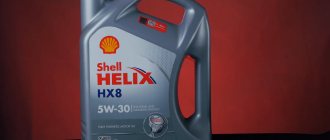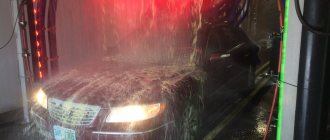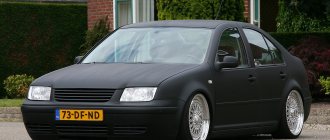There are numerous types of vinyl films for car wraps, so we decided to put together a short guide to help you understand the varieties. Pasting with vinyl film is a popular way of exterior decoration of the body, as well as protecting the paintwork from damage and masking existing flaws. The material is a thermoplastic polymer that fits tightly to the surface of the body and looks like a “native” coating.
Catalog of materials used
The material for Auto Vinyl is special self-adhesive polyvinyl chloride films that have a special adhesive layer on one side and a glossy or matte surface on the other side.
Film thickness is measured in microns (µm).
The applications of films depend on their physical properties. Films used in vinyl styling of cars must be more durable than conventional films for household use.
Therefore, the correct choice of film manufacturer is very important.
The main 2 groups of films for cars are calendered and cast.
Calendered films are obtained by the process of “rolling” PVC raw materials through hot rolls, and cast films are obtained by freely and uniformly “pouring” PVC raw materials onto the surface.
As a result, calendered films have some residual mechanical stress that tightens the film, while cast films do not have this stress, and therefore are more elastic.
During production, special chemicals are added to cast films that increase the elasticity of the film and prevent the color of the film from fading in the sun.
Due to their properties, cast films, unlike calendered films, are suitable for complete vehicle wrapping.
They are usually at least 2 times more expensive than calendered ones and have a longer service life.
General recommendations after wrapping: The car should be left in the same room for at least 3 days; the car should be washed no earlier than ten days after any type of wrapping.
Advantages and disadvantages
Using car film has a huge number of advantages, however, this coating is not ideal, so there are several disadvantages of its use:
- a quick way to change the appearance of your car;
- use is possible not only in relation to the body, but also the interior;
- protection of paintwork from external damage (mechanical and chemical effects, abrasions, cracks, chips);
- budget replacement for complete car painting;
- the use of any film will never damage the paintwork of the body.
- relatively short service life (up to 8 years);
- labor-intensive and lengthy gluing process.
3M Di-Noc
Matte film for cars, produced by 3M (Japan), has a unique Comply adhesive layer with microchannels for air removal, which greatly simplifies working with it.
A completely new solution from 3M is the Controltac adhesive layer, which contains glass beads on the surface, which prevent the film from instantly sticking and allow the technician to correctly place the vinyl film on the dry surface of the car.
The gray adhesive used is particularly resistant to gasoline.
3M Di-Noc films are durable and flexible polyvinyl chloride films with a carbon structure.
High adhesive strength, even on surfaces of complex shape. All Di-Noc films are equipped with a Comply or Micro-Comply adhesive layer, which simplifies gluing and avoids the appearance of bubbles.
Special 3M printing technologies allow us to offer a wide selection of film patterns.
Home vinyl wrap options
Of course, the use of vinyl film is not limited to car body wraps, although the largest number of vinyl film coatings of varying quality and design are produced for auto tuning.
Vinyl film makes it quite easy to work with the texture and color of any object and transfer an image to a wall, piece of furniture or glass.
The advantages of film decor include:
- Comfortable working conditions; to paste the film, you do not need to use glue or heat-shrinkable materials;
- Huge range of colors and textures;
- Possibility of printing compositions and graphics of our own design on vinyl.
No special knowledge or tools are required to work with vinyl film. An exception is car film for body tuning. The complex curved shape of the surface requires serious skills, so complex work is entrusted to specialized companies. You can apply vinyl tint to your windshield with your own hands.
Avery Dennison
Avery Supreme Wrapping Film is known for its superior performance, ease of application and wide selection of colors and textures.
Avery Supreme Wrapping Film series materials are particularly flexible and easily lay on the surface of the vehicle thanks to the unique Avery Easy Apply™ RS adhesive technology, which achieves faster and higher-quality application of the film to the surface being glued.
This technology also helps to avoid the formation of air bubbles between the material and the surface.
Matte finishes are all the rage in car wraps these days, and Avery Dennison Supreme Wrapping films are available in chic colors.
Color metallized films are also in great demand in the market.
Pink, cherry red, copper, green, silver, anthracite and matte gray have been added - now you have a great choice!
The limited time of this offer symbolizes the fact that wraps, especially in the field of personal car tuning, are very dependent on fashion.
24 new colors presented in the Avery film palette are the best reflection of current trends.
Separately, it is worth highlighting the so-called textured films - “scratched” metallic (presented in several shades) and film imitating carbon (in black and white versions). And Avery Dennison Conformable Chrome stands out completely - a silver mirror film with microchannels.
The new Avery Dennison Conformable Chrome Film offers the ability to create a shiny, mirror-like finish on any vehicle.
This film is available to both parts manufacturers and auto repair shops, as well as private car enthusiasts. Conformable Chrome film also comes standard with Easy Apply RS™ technology. This means that the film is easier to work with, since it can slide over the surface, and the air bubble removal system can significantly reduce working time.
The film is very convenient for covering rounded or curved surfaces of a car.
Two-layer film of various colors and structures helps to achieve an unsurpassed visual effect. Subject to operating conditions, this film will last up to 12 years!
KPMF – Kay Premium Marking Films
The KPMF company (England) offers matte vinyl films for cars with a thickness of 150 microns in 7 colors for complete coverage.
The KPMF series of matte films with a thickness of 100 microns consists of 10 shades. The products of this company are characterized by good resistance to moisture, cold, heat and anti-icing chemicals.
- KPMF 50000 is a calendered polymer film for car wrapping.
- KPMF 70000 is a high quality vinyl self-adhesive cast film.
In recent years, KPMF has launched the production of more than 30 new shades of self-adhesive films, which made it possible to expand the color palette of its products to 250 shades.
In the catalog of produced materials you will find, in addition to opaque glossy films and metallic films (18 shades), chameleon films (4 shades), films with glitter (11 shades).
Self-adhesive film for cars KPMF 88000
Thick self-adhesive film (100 microns), made using hybrid technology.
Designed for complete wrapping of vehicles for advertising purposes and to protect vehicles from environmental influences (scratches from crushed stone, reagents, sand).
Due to its thickness, the film can stretch very strongly and take the shape of any complex surface.
White and transparent films are intended for printing.
Main characteristics:
- Adhesive base: clear. glue
- Film thickness: 100 microns
- Adhesive layer thickness: 18 microns
- Tensile force: > 30 N/mm?
- Elongation: > 150%
- Adhesion: separation at an angle of 180°: after 20 minutes - 600 N/m; separation at an angle of 180°: after 24 hours - 750 N/m
- Dimensional stability: <0.5mm
- Resistance to weather conditions: for average climate values of Europe: up to 10 years
- Application temperature: + 12°C to + 15°C on a clean and dry surface
- Application temperature: from - 40°С to + 90°С
How to wrap a car with your own hands
Before you start wrapping your car, you need to prepare your working tools, the room and the car itself. The room must be warm and dry, otherwise the film will not be elastic and may tear.
Here is a list of tools that will help you in your work:
- rubber/plastic spatula;
- spray;
- stationery knife;
- 10% cleaning solution;
- alcohol degreaser;
- hairdryer
Now you need to calculate the consumption of vinyl film. To calculate correctly, you must proceed from the size of the car and the type of body. For example:
- A sedan car will require about 18-20 square meters of film.
- In the case of a station wagon, calculate at least 19-24 meters square.
- SUVs will require significantly more - 25-30 meters of vinyl.
- Before starting work, wash the car clean and degrease the surface using a special cleaner. facilities. It is best to polish the car so that the film lies as evenly as possible.
- The next step is marking. You need to attach the film to the body and measure out a suitable piece. A stationery knife will help you cut evenly.
- If you apply the film yourself, it is better to do it wet, because when you make a mistake, you have a second chance to apply the film evenly and accurately. If you are an expert in this area, then the dry method will seem simple and fast to you.
Sequence of actions during the wet pasting method:
- Uniform moistening of the part of the body to which the film is applied with a washing solution.
- Distribute the film evenly over the area, avoiding bubbles and folds. If it doesn’t work the first time, you can quickly peel off the film once and try again.
- Carefully smooth the film with a rubber or plastic spatula. You must act with extreme caution so as not to damage or tear the coating.
- Dry the film with a hairdryer until completely dry (maximum temperature 50-60 degrees).
- Wipe with a dry cloth or napkin to remove any bubbles that have formed. Small blisters disappear on their own after 5-7 days.
- To avoid deformation and tearing of the film, do not wash the car or drive at high speed for several days.
Thank you for reading the material, we hope it was useful to you.
ORACAL
The ORAFOL company (Germany) produces matte films for vehicle wrapping under the ORACAL and ORAGUARD trademarks.
The most widely used films are: ORACAL 970 (100 microns), ORACAL 970 RA (100 microns), as well as ORAGUARD 290 (50 microns) in saffron yellow, black and white matte colors.
This is Premium class auto vinyl with excellent dimensional stability and short-term chemical resistance.
ORAFOL matte vinyl film stretches in the transverse and longitudinal direction by 120-150%, which allows you to cover uneven and convex surfaces without loss of quality.
Cast PVC film of the ORACAL 970 RA series is vinyl with a special technology for applying the Rapid Air adhesive layer.
This film is easily glued dry without air bubbles.
The low level of initial adhesion allows you to easily move the vinyl film in the desired direction.
72 hours after pasting the car, the matte film is finally fixed and receives the declared stability.
Multilayer cast PVC film for solvent printing with a polyethylene backing.
Recommended for continuous car wrapping using Rapid Air technology.
Suitable for extreme outdoor use - has excellent dimensional stability, wear resistance and moisture resistance.
Repositionable polyacrylate adhesive allows graphics to be repositioned during the application process.
ARLON
Arlon is the highest quality American-made films for wrapping any car.
With the help of Arlon car vinyl, you can easily change the color of your car, and by using textured, matte or metallic effect films when wrapping.
Films from Arlon have a long service life, increased resistance to ultraviolet radiation and mechanical stress.
With the help of Arlon auto vinyl, the body of any car will be perfectly protected during operation from chips and road reagents, preserving the original color for a long time.
- 100 microns thick, two-layer, with a special top layer
- Long service life
- Available in width 152 cm
Vinyl films for printing images
Approximately 2/3 of the range of vinyl film materials is used for applying color and black and white images. The main consumers of vinyl canvases with printed advertising scenes, fantastic scenes and simple black and white graphics are considered to be advertising agents, car tuning firms and construction firms engaged in the production of self-leveling 3D floors.
Thanks to the technology of printing on vinyl self-adhesive film, you can get an image of almost photographic quality. The width of the polyvinyl chloride fabric is equal to the accepted standard of 152 cm. This is enough to make the most complex self-leveling floor or cover any of the existing passenger cars.
Films from Oracal, Orajet, Hexis print are considered the best. The cost of printing one square meter is at least $20, depending on the chosen method of applying the image. Most often, a complex design or photograph is applied using laser thermal printing. Simple pictures, such as camouflage vinyl film, can be formed with colored ink.
For self-leveling floors, a simple calendered film without a protective coating is used. In car tuning, the image formation system is much more complex. It is necessary to take into account the features of the body and the color scheme; most often, cast film sheets with a protective polyurethane coating are used for tuning.
If you need a small advertising poster with colorful photo printing that will look great in a store or salon window, you can use FotoJet vinyl material, the quality is no worse than Oracal.
